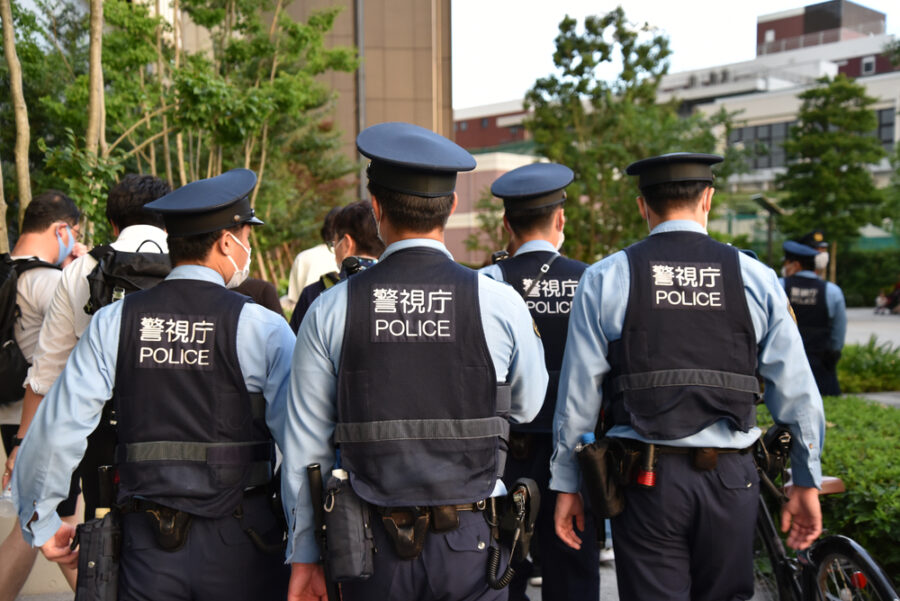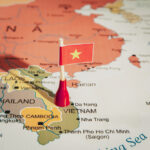Japanese police charge two men over illegal affiliate site

Two men have been charged in Japan’s first crackdown on an online casino affiliate site, after allegedly facilitating JPY70 billion (US$468 million)1 JPY = 0.0067 USD
2025-09-26Powered by CMG CurrenShift in illegal wagers.
Gifu Prefectural Police arrested Hisato Yonezawa, a 40-year-old Osaka company executive, and one other person on suspicion of abetting habitual gambling and running a promotional website called Onkaji Hissho (Guaranteed Wins).
Investigators said the site lured around 670 customers over four years with claims of easy profits, directing them to a Curacao-based casino.
The two men are accused of arranging an affiliate agreement with the overseas casino in 2021.
Unlike past cases where promoters were paid based on customer losses, the men allegedly received commissions tied to the total wagers placed.
The site featured what it described as “winning strategies” and weekly promotions. Police said the suspects also set up a Discord group, which attracted around 300 participants seeking exclusive tips.
Authorities stressed that even casinos legally licensed overseas can be targeted if they solicit Japanese users.
A senior police official said, “No customer ultimately wins at online casinos. Only the operators and related businesses profit. Even casino sites legally operated overseas will be targeted in crackdowns if they advertise to Japanese audiences and encourage gambling. Do not enter advertising contracts with casino operators.”
The case underscores growing concerns over the rise of illegal gambling and gambling addiction in Japan. Last weekend, a conference in Tokyo was held to discuss ways to combat addiction.
Charlotte Capewell brings her passion for storytelling and expertise in writing, researching, and the gambling industry to every article she writes. Her specialties include the US gambling industry, regulator legislation, igaming, and more.
Verticals:
Sectors:
Topics:
Dig Deeper
The Backstory
A turning point for Japan’s online gambling fight
Japan’s escalating campaign against offshore betting did not start with a single raid. It has been building through a series of moves by police and lawmakers who see a fast-expanding gray market and rising addiction risks. Authorities have shifted from public warnings to coordinated takedowns and criminal charges as they test new powers aimed at curbing the digital casino economy.
The push gained momentum as the Diet advanced a revision to the country’s anti-addiction law that explicitly targets sites and promotions guiding users to offshore casinos. The bill passed the House of Representatives with broad support and is designed to ban the launch of online casinos in Japan and penalize the promotion of those sites. It also compels social media platforms to remove illegal gambling content. The move followed revelations about celebrities using online casinos and a police survey that estimated more than three million people have gambled online, signaling the scale of the market authorities are confronting.
Police then translated that policy intent into action. The National Police Agency said it would start requesting removals of “icasino” sites and ads aimed at Japanese users and indicated it could revise internet monitoring guidelines to include illegal igaming. The agency signaled that even free-play portals or link hubs could be targeted. The stance was spelled out in a nationwide crackdown plan tied to the law’s enforcement date, with the goal of making clear to domestic and foreign operators that advertising to Japanese audiences would be treated as illegal.
From policy debate to enforcement
Enforcement soon followed. Tokyo police arrested a man they allege wagered up to JPY28 billion on the platform Stake and acted as an affiliate to attract customers. Investigators said he referred more than 100 people and collected commissions, reflecting how influence and referral economics have become a key vector for offshore operators. The case underscored the NPA’s estimate that online gambling in Japan has topped JPY1.2 trillion and the finding that many users did not know the activity is illegal.
Police then made a sharper statement by charging two men in what they called the country’s first crackdown on an online casino affiliate site. Investigators in Gifu Prefecture alleged the pair ran a promotional portal that steered roughly 670 customers to a Curacao-based casino and facilitated about JPY70 billion in wagers. Unlike past arrangements where affiliates earned based on losses, police said these operators were paid commissions on total bets, incentivizing volume. The site pushed “winning strategies” and ran weekly promotions while a Discord group offered exclusive tips. Authorities framed the case as a signal that overseas licensing will not shield operators or promoters who target Japan. The charges against the affiliate operators marked a test case for how far police can go against marketing infrastructure, not just bettors.
Together, the Stake arrest and the affiliate charges show a pattern: enforcement that aims to disrupt the funnel that leads users to offshore casinos and the social mechanics that keep them engaged. It also shows coordination among prefectural police and the capital’s force as they probe both high-volume bettors and the digital channels that draw new traffic.
Affiliate marketing under the microscope
Affiliate marketing sits at the center of the crackdown. The Diet’s bill does not only target casino operators, it explicitly outlaws promotion and requires platforms to scrub links and tutorials that drive traffic to offshore sites. The NPA’s takedown strategy extends that approach to web infrastructure, including content that frames itself as education or free-play.
The Gifu case highlights how affiliates adapted to evade traditional tracking. By tying payouts to handle instead of losses, promoters aligned themselves with operators’ growth in activity rather than outcome. Discord communities and social accounts amplified that reach with claims of easy profits. Investigators now treat those touchpoints as actionable when aimed at Japanese users.
The legislative and enforcement tracks reinforce each other. The NPA’s removal campaign relies on clearer statutory hooks from the anti-addiction law revision, while the bill’s penalties and platform obligations become more credible as police show willingness to bring charges. The message to affiliates and influencers is direct: promotional contracts and content tied to offshore casinos can trigger criminal exposure even if the underlying operator is licensed abroad.
Regional pressure and cross-border play
Japan’s moves track a broader Southeast and East Asian sweep against illegal online gambling. Vietnam, working with Lao authorities, charged 31 people tied to a cross-border network that allegedly handled VND1.3 trillion in wagers. Police there said the ring leaders recruited operators, ran payments to overseas providers and split profits, while Lao police seized phones, computers and livestream gear. The joint Vietnam-Lao operation shows how enforcement is migrating to the production side of the business, targeting marketing pipelines and tech infrastructure across borders.
The Philippines is also reshaping its response. The national regulator PAGCOR launched an online portal that lists licensed operators and directs users to legitimate sites. The move aims to give consumers a quick way to verify platforms and to blunt the appeal of offshore brands. Regulators framed it as a measure to protect players and preserve tax revenue amid a proliferation of illegal services. The PAGCOR Guarantee site complements broader legislative pressure, including a Senate push to strengthen the ban on offshore operators, and reflects how regulators are using transparency as a tool alongside enforcement.
These regional actions matter for Japan. Offshore operators rarely confine themselves to one market. Payment channels, marketing hubs and tech stacks cross borders. As neighbors harden their defenses, pressure can push promoters to test new footholds. Japan’s public stance that advertising to domestic users is illegal is designed to deter that displacement and discourage domestic affiliates from signing cross-border deals.
Why regulators are racing to act
The stakes are high. The NPA’s survey suggests a large domestic user base and a sizable flow of money offshore. That raises consumer protection concerns and threatens tax receipts. It also risks normalizing unregulated gambling in a country that limits legal wagering to lotteries and publicly operated races.
Lawmakers and police are betting on a combination of legislative clarity, platform accountability and targeted prosecutions to reset the market. The bill’s platform obligations aim to cut off distribution, the NPA’s takedown requests aim to reduce visibility and the affiliate charges in Gifu and Tokyo’s high-stakes case aim to chill promotion. Regionally, Vietnam’s cross-border bust and the Philippines’ licensing portal show a toolkit that blends policing, public education and regulatory signaling.
The open question is whether enforcement can keep pace with a digital industry that thrives on anonymity, influencers and frictionless payments. Japan’s authorities are moving to make examples of promoters and to force platforms to police content. If that combination curbs the top of the funnel, the market could shrink. If not, expect more cross-border investigations and a deeper focus on payment intermediaries and adtech. For now, the signal from Tokyo is clear: licensed abroad will not mean tolerated at home.








